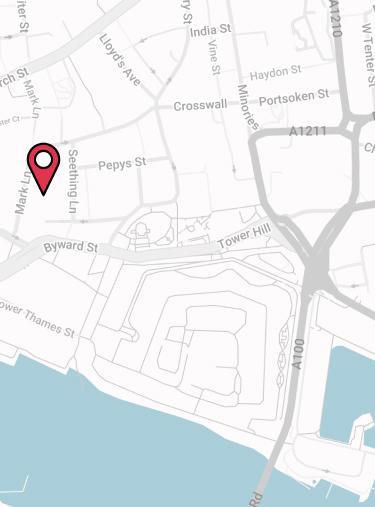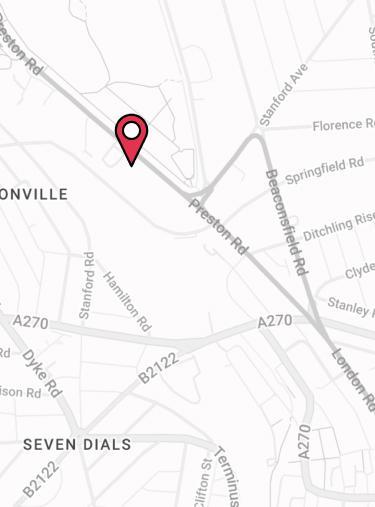Many dentists are self-employed and work through their own dental practice. As a result, most tend to have very little or no sick pay. If they were to suffer a long-term injury or illness, it can easily turn into a financial nightmare.
This is why many of our clients buy Dentists Income Protection to help protect their income. If you’re considering getting your own policy, this comprehensive guide to Income Protection for dentists is for you.
What Is Dentist Income Protection?
Dentist Income Protection policies provide an income you can rely on should you be too ill or injured to work.
- Cover your core outgoings (think mortgage / rent payments, household bills and groceries)
- Protect up to 70% of your gross salary
- Help to maintain your regular standard of lifestyle while recovering
- Can pay out from 1 week of illness or injury
- Protect your income right up until your expected retirement age.
Why Is Income Protection For Dentists Important?
Whether you work as a self-employed dentist or are employed through the NHS or a private practice, you’ll want to ensure your income is safe if you have to take time off.
Sick pay entitlement differs depending on how you work. Self-employed dentists who are business owners or directors will not be entitled to any sick pay. If you need sick leave, you’re going to lose some of your income.
Even if you’re employed by a dental practice, you may not get sufficient sick pay for long-term absences. Income Protection for Dentists can give you peace of mind, knowing that if you’re unable to work you’re financially covered.
How Does Income Protection For Dentists Work?
Dentists Income Protection works in the same way as an individual Income Protection policy. The only difference being the cover is designed specifically for dentists.
It will cover most illnesses and injuries that prevent you from working short or long term.
When applying for cover, you’ll choose:
- How much cover you require (typically a percentage of your monthly income)
- Policy length (short term or long term up to retirement age)
- A deferred period.
These factors will impact the cost of premiums, which you’ll pay either monthly or annually. If you need time off work because of an accident or illness, you can make a claim, provided your policy covers the medical issue.
Once your deferred period has passed, you’ll begin to receive your monthly benefit tax-free. Payments will continue until you’re well enough to go back to work, the policy life ends, or you retire, whichever is sooner.
SPECIALIST TIP 🤓
If you need to make a claim, you’ll need to inform the insurer as soon as you think you may be off work for a long period of time. This helps ensure you receive the benefit when you need it most.
What Does Income Protection Insurance For Dentists Cover?
Dentist Income Protection pays out a tax-free monthly benefit if you’re unable to work and earn an income due to:
- Accidents or bodily injuries
- Periods of sickness and illness.
As a dentist, you want to make sure your Income Protection policy covers you in your own occupation. This will ensure the policy pays out for any illness or injury that prevents you from carrying out your duties.
A hand injury, for example, could derail your dental career. Should this unfortunately happen, you’d want the policy to pay out on your inability to do your job as a dentist, rather than on any other terms.
Support Services & Additional Benefits
Many Dentist Income Protection insurers offer extra benefits alongside policies to support your health and wellbeing. These free services may include:
- 24 / 7 virtual GPs
- Physiotherapy sessions (either online or in person)
- Counselling / cognitive behavioural therapy sessions (either online or in person)
- Discounts on gym memberships / fitness trackers
- Second medical opinion service, providing access to specialists for a second opinion on a diagnosis or treatment.
Many of these can also be used by your immediate family (your spouse or dependent children), increasing the value of the policy.
What Doesn’t Dentist Sick Pay Insurance Cover?
When taking out cover, it’s important to understand that there will be limitations and restrictions.
Pre-Existing Medical Conditions
If you’ve had a health condition in the past 5 years, it will need to be disclosed when applying for cover. It may be excluded by your insurer.
Depending on the severity of your condition, the insurer will either:
- Provide cover with no change in premium
- Provide cover with an increase in premium
- Or completely exclude the condition in your cover.
Self-Inflicted Injuries
Aside from pre-existing conditions, most policies exclude self-inflicted injuries and any illnesses / injuries that occur from:
- Misuse of drugs or alcohol
- Pursuit of illegal activities
- Participation in extreme sports and activities
- Travel to countries where travellers have been warned against visiting, due to active conflict, political instability and terrorism risk.
Other than these, most Dentist Income Protection policies don’t have any standard exclusions. What you’re covered for will be dependent on your medical history at the time of buying the policy.
Can my business pay for my Dentists Income Protection?
Many dentists run their own private practice and are structured as a limited company. If you’re a company director, you can get Executive Income Protection, which is paid by your business.
It’s important to note that should a claim arise, the benefit payment is liable for tax. As such, your level of cover will need to be grossed up to take account of the tax due.
Does Dentist Income Protection match my NHS sick pay?
NHS workers get more generous sick pay than most other workers. This is set at a maximum of six months full pay and six months half pay, depending on your length of service.
Given this, you can set your deferred period to match and reduce premiums considerably. This is known as an NHS sick pay mirroring deferred period.
If you get the full NHS sick pay, then in the first instance, the cover won’t kick in for the first 6 months. This is because you won’t need it as the NHS will pay full pay for that period. The cover only kicks in after those 6 months, so you can pick a six month deferred period to save on your premiums.
When you start receiving half pay, the policy pays out half your benefit to ‘top up’ your half sick pay. After a year, the benefit begins paying out the full amount.
Your insurer only pays out half of the benefit for six months of the first year, thanks to your NHS sick pay. So there’s room for a premium discount, compared to a policy where the insurer has to pay the full benefit out sooner.
What are the most common claims of Dentist Income Protection?
The most common claims dentists make on Income Protection policies are for musculoskeletal issues (e.g. bad backs) and mental health problems.
Both are particularly prevalent among dentists compared to other professions. In fact, musculoskeletal issues are a big concern due to poor posture and repetitive movements during dental procedures.
Do I Need Dentist Income Protection?
It’s important to understand the risks of your profession when considering Dentists Income Protection. Not all dental professionals will need cover, it depends on how loss of income would affect you. When considering cover, it’s important to think about:
- Your core financial commitments
- If you have enough savings
- Whether your loved ones could support you.
Assessing Your Incapacity Risk
Your livelihood as a dentist isn’t risk free. The role often exposes you to infections, radiation and you may suffer injuries from dentistry tools.
You’re also at a higher risk of musculoskeletal complications, such as carpal tunnel syndrome, tendonitis, and bursitis. These are caused by repetitive motions and strained postures during procedures. Many dentists experience neck, shoulder, hand, and back pain due to their roles.
What’s more:
Lack Of Savings
Some dentists may have enough saved to protect them financially if they needed to take time off work. But this is not the case for everyone.
In a recent survey, we found that only 1 in 5 people have enough savings to cover a week’s living expenses. When you consider that the average UK household expenditure is around £528 a week, those out of work may not be able to cover their outgoings.
This is what makes Income Protection for dentists so valuable. It can provide a handy lifeline, ensuring you can still pay for your essentials.
What About State Benefits?
The government provides Employment and Support Allowance (ESA) if you can’t work due to illness or injury. The benefit starts at £84.80 a week for over-25s. Given the cost of living, this amount wouldn’t make much of a dent in your regular outgoings.
There are other state benefits, but eligibility depends on the severity of your condition/injury. Most often, these benefits will not replace lost income, which reiterates how important Dentists Income Protection is.
Factors To Consider When Buying Dentist Income Protection
When choosing a Dentist Income Protection policy, there are many factors to consider. These will influence the cost of your premiums, including:
- The deferred period
The deferred period is the length of time you need to be out of work to begin claiming your benefit. Deferred periods start at 1 day and run all the way up to 2 years. If you have enough savings to last a month, for example, you can select a deferred period of 4 weeks
- Sum assured
Income Protection for dentists can insure between 50% and 70% of your gross earnings. The more you choose to cover, the higher your premiums. However, the amount of cover you need is dependent on your personal circumstances
- Your policy cease age
This refers to how old you’ll be at the end of the policy. You’ll set this to align with your retirement age, which may be 60 or 65, for example. The older your cease age, the higher your premiums. But you’ll be covered for longer.
You also need to consider:
- The length of your claims period
You can choose either Short-Term or Long-Term Income Protection. Short-term cover will pay out for a maximum of 1, 2 or 5 years per claim. Long-term plans will pay out right up until you reach retirement age (policy cease age) if you need it
- Indexation
An index-linked Income Protection policy will increase your benefit amount in line with inflation. This ensures that the overall value of your policy does not depreciate over time. As cover increases with inflation, so will your premiums to compensate for the fact you’ll be receiving a higher benefit.
The Premium Type
There are three premium options to consider when buying Dentist Income Protection:
- Reviewable premiums
Reviewable premiums can be ‘reviewed’ by the insurer at any time. They may rise in a number of circumstances, such as a spike in claims or based on economic factors. These premiums often start out cheaper, but can work out more expensive over the life of the policy
- Age-banded premiums
Age-rated premiums also work out cheaper at the start but then rise each year. Unlike reviewable premiums, age-banded premiums can only rise by a preset amount stated in your policy. Any rises are solely linked to your age and the increasing risk of you claiming as you get older
- Guaranteed premiums
These are usually a little more expensive initially. But the good news is that the premiums cannot be adjusted over the life of the policy by the insurer. Guaranteed premiums tend to work out cheaper during the policy, especially if cover started when you were young and healthy.
Own Occupation Cover
The definition of incapacity is what your insurer uses to define whether you are incapable of working and entitled to claim benefits. With the own occupation definition, you’ll be able to claim as long as your health prevents you from working as a dentist.
All types of Income Protection Insurance for dentists will provide own occupation cover. But it’s particularly important given the level of skill required as a dentist. From our experience, we always recommend own occupation to ensure our clients get financial support when they need it most.
Other definitions of incapacity, such as ‘Suited Occupation’ or ‘Any Occupation’, may limit your ability to claim if you’re well enough to work in another role.
How To Make A Dentist Income Protection Claim
As soon as it becomes clear that you’re likely to be out of work for longer than your deferred period, you should tell your insurer.
Your insurer will be able to process your claim sooner if you inform them you’re incapable of doing your job. They’re likely to require two things from you to submit a claim:
- Completed claims form
- Medical evidence from your GP or other medical professional.
The claims form can usually be completed online or downloaded. The latter will require you to return it by post to the insurer.
Medical evidence comes in many forms. It could be a simple sick note from your GP stating the medical issue and signing you off work for a specific period. In some cases, you may need scan results as evidence.
Once you’ve been out of work for longer than your deferred period, you’ll begin to get a monthly income from the policy until either:
- You’re well enough to return to work
- You reach the end of your claims period (1, 2 or 5 years for short-term policies)
- Or the policy ends (typically at retirement, for long-term cover).
GOOD TO KNOW 🧐
In 2022, leading insurers Aviva and Liverpool Victoria paid 94.3% and 92% retrospectively of valid Income Protection claims.
Neil’s Cancer Claim With British Friendly
Neil is a client of Drewberry who took out Accident and Sickness Insurance with British Friendly. He was a policyholder for 4 years before he needed to claim.
Neil became unwell with pains in his stomach. After consulting his GP and having some tests, he was diagnosed with Stage 2 Bowel Cancer and needed to make a claim. View Neils story 👇.
Specialist Income Protection For Dentists
If you’re an NHS dentist, there are some dentist policies that align with the NHS’s unique sick pay scheme. While these policies are designed for doctors and surgeons, some insurers offer similar terms if you work for the NHS.
These specialist policies pay out a proportionate benefit as soon as you stop receiving full sick pay to supplement your income. So, if you get six months of full sick pay and six months of half pay, the benefit will kick in after six months to ‘top up’ your half pay.
NHS Sick Pay For Dentists
If you work for the NHS, the maximum amount of sick pay you can receive will change depending on your length of the service.
Should your condition be serious enough that you need to take a year or more to recover, your NHS sick pay will run out. You’ll then need to rely on savings or other financial means to get you through.
If you’re self employed with your own dental practice, the NHS long-term sickness pay may not apply to you. To receive it, you must:
- Be named on the NHS dental performer list for two years (this doesn’t have to be continuous)
- Have provided NHS dental services within the last two years
- Not be registered as a limited company.
Income Protection For Self-Employed Dentists
A dentist running their own private practice as a corporate entity should consider Executive Income Protection.
This can take into account any salary and dividends that you pay yourself through your own limited company. It can also cover your National Insurance and pension contributions. The policy is owned by the business and premiums are paid by it.
Executive Income Protection is tax-efficient, as you’re taxed on the benefit when you claim. It also means self-employed dentists can receive a form of sick pay.
If you can’t work due to accident or sickness, Income Protection Insurance paid for by your company will kick in to pay a monthly benefit back into the business. You’ll then distribute these funds from your dental practice via your usual remuneration process, such as PAYE.
Difference Between Executive & Personal Cover
The major difference between Executive Income Protection and personal protection is that it’s owned and paid for by the business. If a claim arises, any benefit will be taxed as income. HMRC allows these premiums to be tax deductible, so you can enjoy a reduced corporation tax bill.
Personal Income Protection, on the other hand, is a tax-free benefit as you’re paying the premiums from post-tax income.
IMPORTANT NOTICE❗️
Given the benefit from an Executive Income Protection policy is taxable, you can insure a higher proportion of your pre-tax income–up to 80%.
If you’re unsure which type of Income Protection is best suited to you, get in touch with one of our financial advisers. We can provide specialist advice and help find the right policy for you. You can contact us today by calling 02084327333 or via email at help@drewberry.co.uk.
What information is required to apply for Dentist Income Protection?
Before you start your application, be sure to have the following information on:
- Any pre-existing conditions you may have
- Your family medical history
- Whether you partake in any extreme sports or hobbies outside of work
- Your lifestyle habits, such as smoking and alcohol consumption.
Can trainee and student dentists apply for Income Protection?
Yes. Some Income Protection providers offer cover for those training to become dentists. You may be able to get coverage for a number of years while you train. Though, it’s best to double check with the providers you’re considering before applying, just to be on the safe side.
What is the best Income Protection provider for dentists?
The best Income Protection Insurance for a dentist will depend on your individual needs and budget. To find the best policy for you, we recommend comparing the providers on the UK market.
There are many insurers out there who offer Dentists Income Protection. However, there’s often a lot of information to take in, which can make finding the right policy complex.
If you’re struggling to find the right cover as a dentist, you can speak to one of our independent financial advisers. They know the market inside and out, so they’re best placed to help you get the right cover at the best price. Contact us today by calling 02084327333 or via email at help@drewberry.co.uk.
How Much Is Income Protection For Dentists In The UK?
The cost of Dentists Income Protection depends on your job role and a variety of other factors. Below are some examples of the costs depending on different factors, such as the provider, your age, and whether you smoke.
1. The Provider
Each Income Protection provider will charge a different monthly premium. This is because each insurer has its own appetite for risk and can offer different services and benefits. So it’s always good to shop around when looking for the most suitable Dentists Income Protection.
To show how costs can differ from provider to provider, we’ve pulled some quotes below. These are assuming:
- A monthly benefit of £1,500
- You’re a healthy non-smoker aged 35
- An 8 week deferral period
- A cease age of 65
- Long-term cover.
2. Your Age
The older you are at the start of your policy, the higher your premiums. This is due to the increased risk of sickness or injury as you age.
Below are some monthly premium examples for dentists of differing ages using the same policy options as above. These are for guaranteed premiums.
3. Your Medical History
An insurer may increase your premiums if you have a pre-existing medical condition or simply exclude that condition outright.
Pre-existing conditions are excluded due to the long-term treatment and medication needed, as this would increase the cost for the insurer.
4. Smoker Status
Smokers are more at risk of developing a health condition. Most insurers charge higher premiums if you smoke, but not all.
Here’s an example of the difference in cost per month between a policy for a non smoker and a smoker. This is based on the above policy options for a 35-year-old.
5. The Deferred Period
Insurers typically offer deferred periods of 4, 8, 13, 26, or 52 weeks. The longer your deferred period, the cheaper the premiums, as the insurer doesn’t have to pay out immediately.
Here are some examples of policies with different deferred periods. These are based on the previously used policy options from above.
You can see how a longer deferred period reduces premiums. Opting for a 13 week wait, for example, should only be considered if you can live off savings etc. for that length of time.
If you’d like personalised quotes, you can use our Income Protection comparison tool to compare quotes from the top UK insurers.
Compare Best UK Dentist Income Protection Providers 2026
There are a vast range of insurers who provide Income Protection for dentists in the UK. Even with specialist dentist plans, it’s key to compare Income Protection quotes from all leading providers to get the best deal for the best price.
As well as individual product reviews, we have a specialist guide comparing the terms of the best Income Protection providers. Reading this will make sure you’re aware of the key things to look out for when choosing a policy.
Specialist Policies For Dentists
General Income Protection Insurance Providers
Our specialist in-depth review of each of the UK's leading providers
Get Dentist Income Protection Quotes & Specialist Advice
As a dentist, there are many Income Protection cover options. With sick pay entitlement and taxation to think about, setting up Income Protection can be a bit of a minefield. To ensure you get it right, we recommend you get in touch with us for support.
Our financial advisers have years of knowledge and experience between them, placing them in good territory to give advice and provide recommendations. If you’d like more help with buying a Dentists Income Protection policy, please contact us. You can call 02084327333 or email help@drewberry.co.uk.
Why Speak to Us?
When it comes to protecting yourself and your finances, you deserve first-class service. Here’s why you should talk to us:
- There’s no fee for our service
- We’re an award-winning independent insurance broker, working with the leading UK insurers
- You’ll speak to a dedicated specialist from start to finish
- 4090 and growing independent client reviews rating us at 4.92 / 5
- Claims support when you need it most
- We’re authorised and regulated by the Financial Conduct Authority. Find us on the financial services register.



























